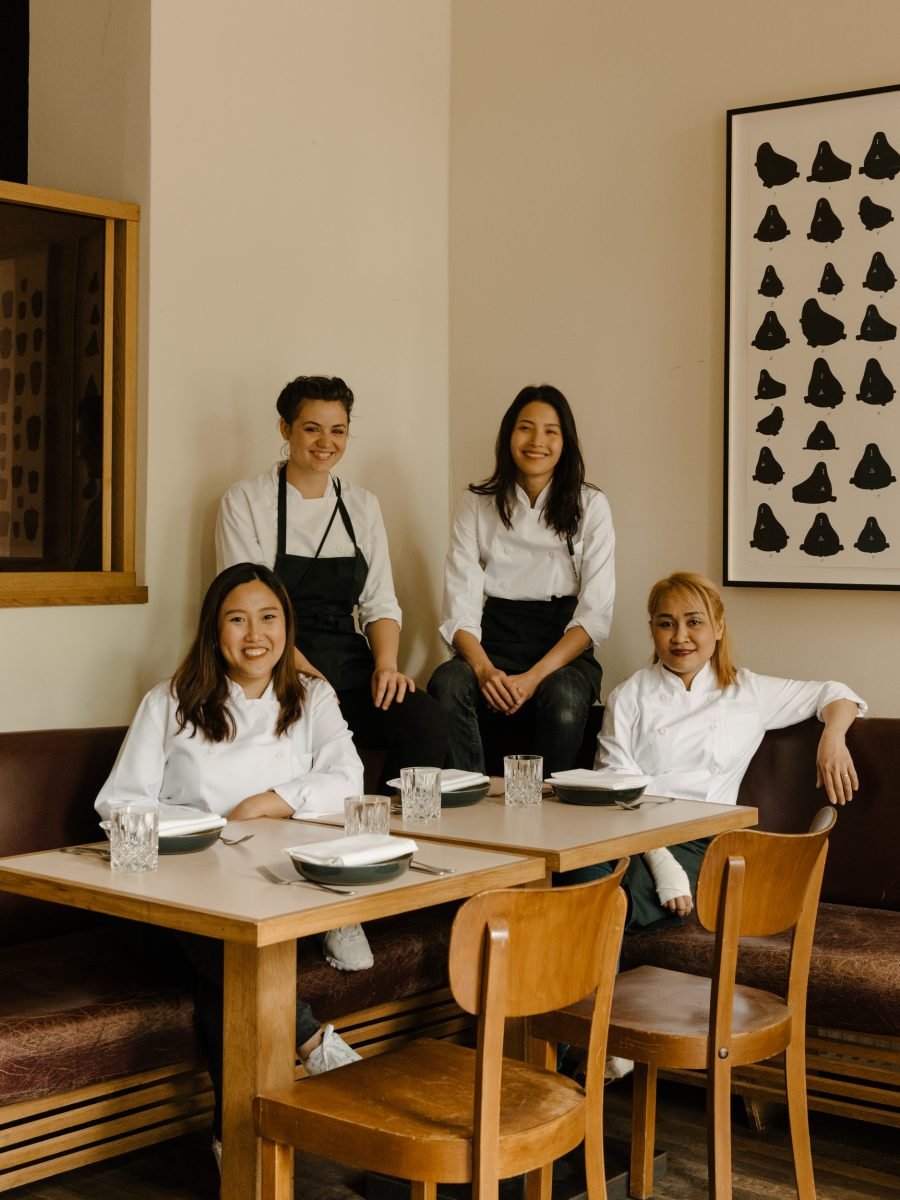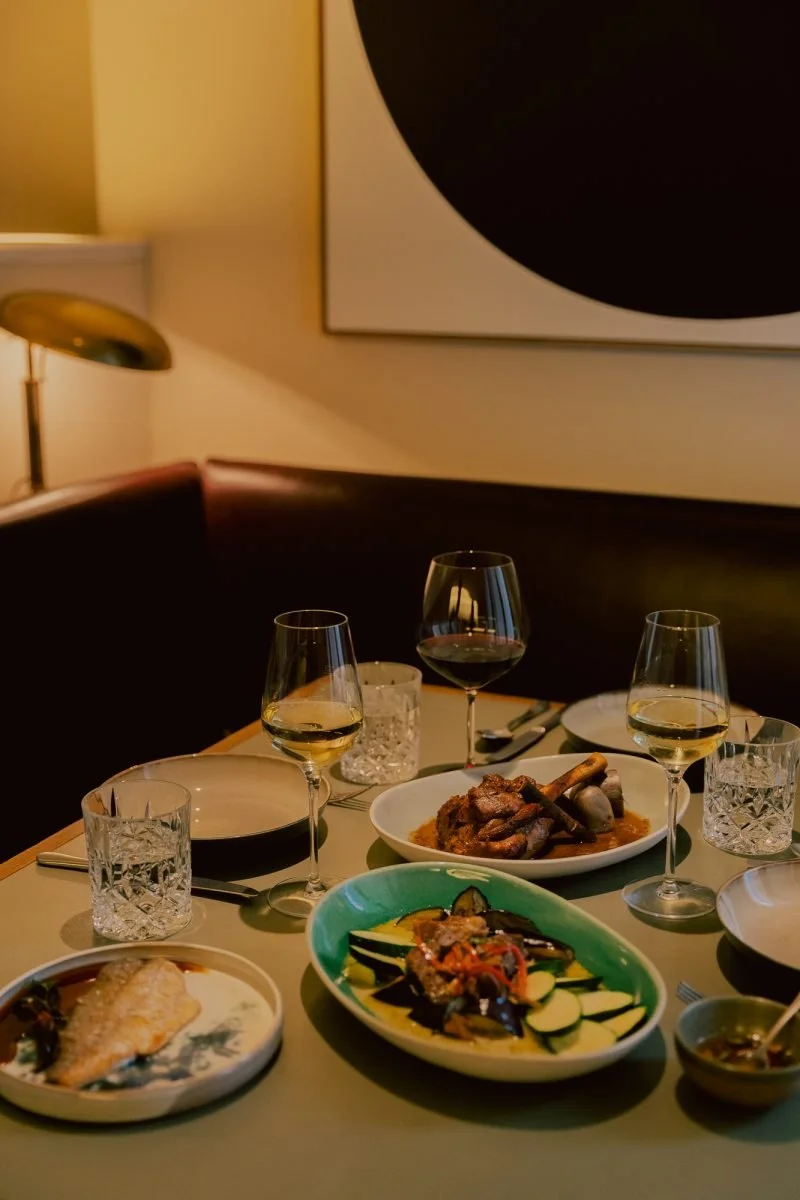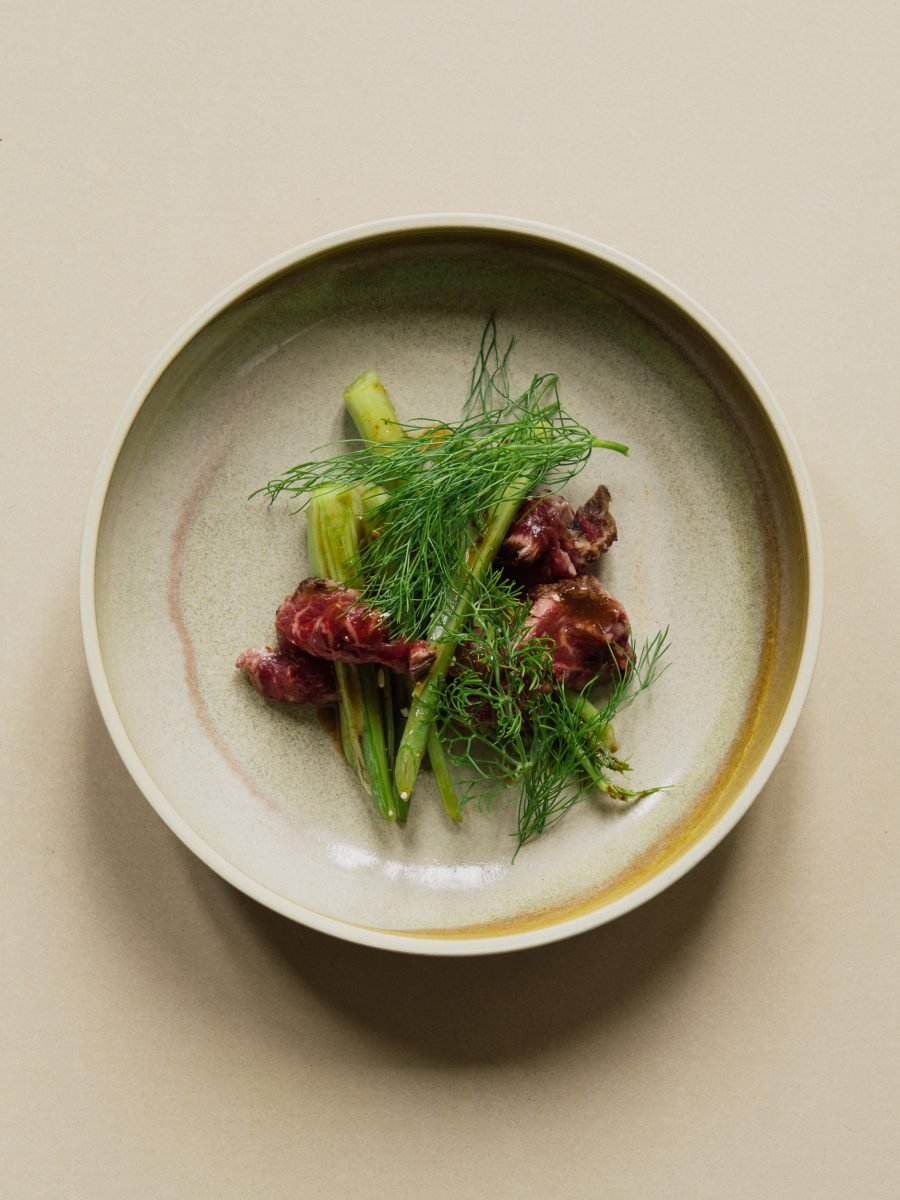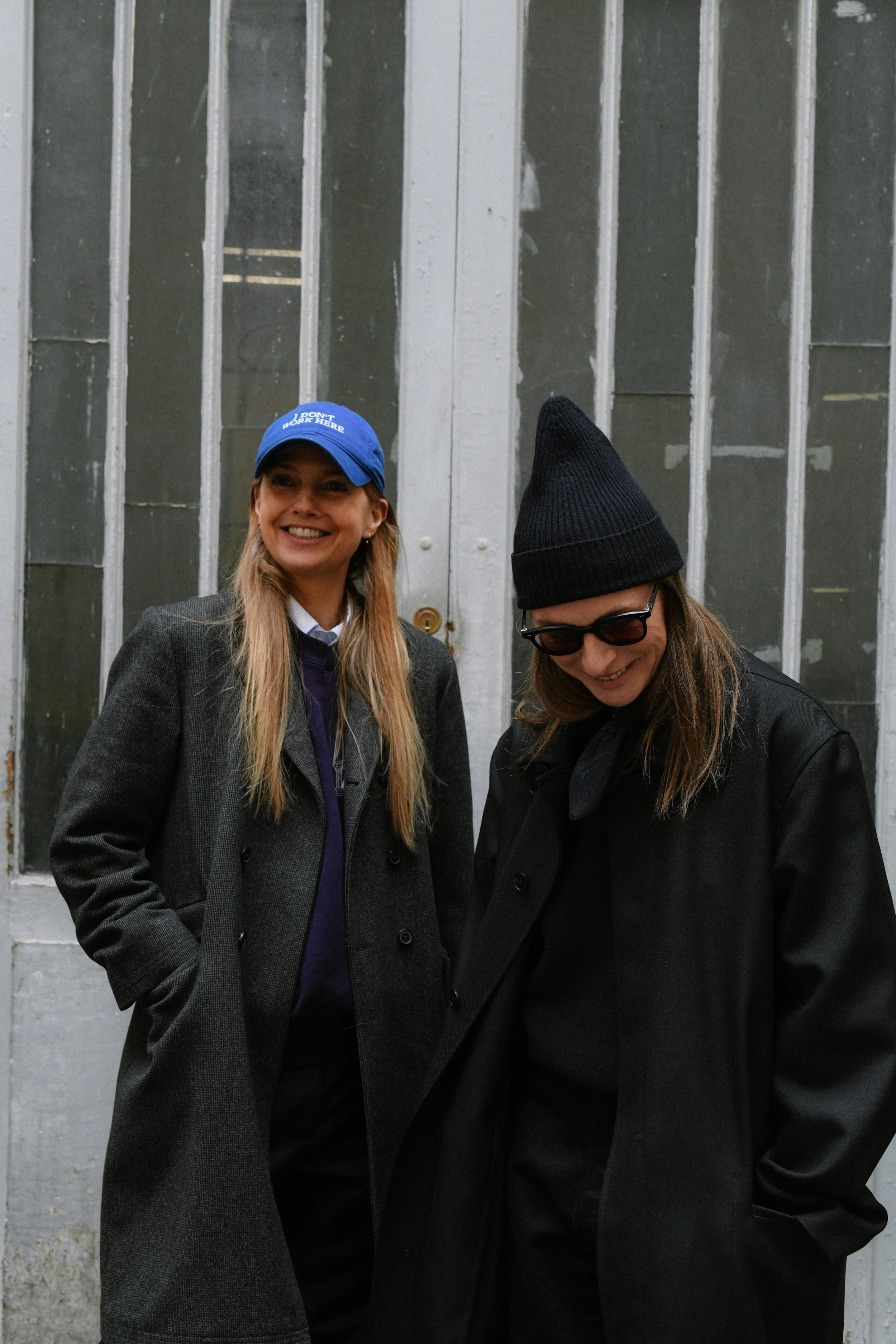The Chef Who Rules the Pass on Her Terms
Dalad Kambhu, photography by Robert Rieger.
Dalad Kambhu
The Chef Who Rules the Pass on Her Terms
By Bonnie Langedijk
Dalad Kambhu isn’t afraid to tell you how she really feels. The outspoken Berlin-based head chef of contemporary Thai restaurant Kin Dee received her first Michelin star after only three years in operation. Making her one of only ten female chefs in Germany – and one of the youngest – to be awarded one. At Kin Dee — “eat well” in Thai – Kambhu serves a three course seasonal menu celebrating the flavors she grew up with, from ethically caught, locally-sourced ingredients. Driven by creating an industry that’s more sustainable, diverse and female-friendly, Kambhu challenges every aspect of the traditional kitchen. From how she leads her mostly female-run kitchen, to how she sources her ingredients – sometimes from city parks in Berlin – to the decision making process of what ends up on your plate and why. With no intention of hiding her own negative experiences working in – mostly still male-dominated – kitchens, Kambhu is lifting the curtain of the culinary world while striving to change what happens behind them.
Couresy of Kin Dee, photography by Robert Rieger.
The Kin Dee team. Courtesy of Kin Dee.
Bonnie: How would you describe your food philosophy? What are some of the driving factors behind your approach to food?
Dalad: I would say that my approach to food started with my love for my home, my country, and our culture. I wanted to create food I grew up eating but I realized quickly how unsustainable the world had become. We consume more than we need and we are depleting our resources and the earth. I want to be part of the solution. One of the things we can do to help is to eat sustainably. That means supporting small farmers who care for the land, eating locally, and questioning; how wasteful is this restaurant and kitchen? I know many chefs who preach about sustainability, while using plastic like there’s no tomorrow. I also know many chefs who give zero-fucks about the environment and who only cook what they feel like, flying in all kinds of products just for their ego to feel secure. My approach is a combination of a love of my culture, nature and the dislike of men’s egos that have set an awfully unsustainable standard in our industry.
“My APPROACH is a combination of a love of my culture, nature and the dislike of men’s egos that have set an awfully unsustainable standard in our industry.”
Where did your interest in food and cooking come from? Is it something you gravitated towards from an early age?
Dalad: It definitely came from the love of food my family has. We’re a foodie family. It didn’t matter if it was a hole-in-the-wall kind of place, my mother would still bring us. Sometimes, she even made me skip school to go hang out with friends and eat good food. Food is so important to us, to enjoy and nourish our bodies. In our culture, the love for food passes through to children from a very young age.
That’s beautiful. Food is definitely a connector and such an important part of shaping communities and cultures. At any point, was there a specific meal that impacted you before or during your career as a chef?
Dalad: Many meals have shaped me. The creative meals I had in New York in the early 2000s were incredibly profound to my mindset on creativity in food. But, the most important meals were the ones I grew up eating in Thailand. The love Thai people give through food is so deep. Nothing compares. It’s a shame that we grew up thinking that Western cultures were better. We grew up thinking French food was superior when in reality Thai food is one of the most complex cuisines in the world. We were never told to own it and to be proud of it. We often get lost and westernize ourselves, thinking that’s the way to gain respect in the culinary world, while what we had was always more than good enough. Now it’s time to look back to our culture, to look back to what we grew up eating and be proud of what we are.
Chicken satay and Kin Dee. Courtesy of Kin Dee.
Kin Dee’s seasonal menu is composed of three courses. In honour of Thai culture and its spirit, the restaurant serves their food family style.
You were raised in Bangkok and spent your early twenties in New York before moving to Berlin. How has living and working in countries with such different cultures influenced your approach to food?
Dalad: It has been interesting and difficult at the same time. I love all the places I’ve lived in and grown up in with my whole heart. I love the open mindedness, the sophistication, and how everything is so advanced in all creative fields, in New york – including food. I love how real, yet relaxed, it is in Berlin. There’s superficiality everywhere, but I must say it’s much less so here, not to mention how progressive some people here are. For Bangkok, I love the energy and the warmth. You can never find that combination anywhere else in the world. In a city that is so vibrant, people are still so open and welcoming.
What about the food?
Dalad: There are big differences in food culture. Here in Berlin, people mostly eat at home and tend to spend less on food at a restaurant. In a way it’s a good thing, people are less of a consumerist here. But, the respect and how people value food can be difficult for chefs who want to do things the right way. People here prioritize spending money on the oil that goes into their car rather than investing in how they fuel their bodies. The sentiment is changing – especially amongst younger generations – but there’s still a long way to go when you compare it to New York or Bangkok. In Thailand, we enjoy every meal and it’s about the taste and quality rather than big portions. In New York, there are no boundaries when it comes to your creativity as long as the quality is there. In Berlin, there are a lot of bad-quality restaurants that do well, while good-quality restaurants are struggling hardcore. Particularly now, with the economic downturn and the war in Ukraine.
It’s interesting how every city creates its own ecosystem. I wonder if the food culture aligns with what’s happening in other creative disciplines in those cities. Social media has undoubtedly impacted the way people interact with food and food culture at large. What’s your take on social media when it comes to food and restaurants?
Dalad: Oh, dear. So many restaurants look good on social media but taste so shit. Please, don’t go eat according to social media. Follow reputable food writers and taste it yourself.
Courtesy of Kin Dee.
Courtesy of Kin Dee.
That’s great advice. I read that you didn’t have any formal training as a chef, do you think that’s benefited you or worked against you?
Dalad: It has given me both advantages and disadvantages. The disadvantage is that I’ve had to learn on the job. It also made me run the kitchen very differently compared to other kitchens. I’ve never really yelled or screamed. I never lead by fear, but rather by communal support. That’s something that’s very difficult to do in the kitchen. Most male chefs are used to working with tough bosses and they take kindness as softness and push back. I’ve had horrible interactions with many male chefs and some white female chefs too. They’re used to different structures. I find it very interesting with these women actually. It doesn’t surprise me when men serve the patriarchy but these women – who called themselves feminists – and claim that they want to do things differently. Somehow, they always worshiped the white male chefs more than anything. They were the hardest on women of color in the kitchen who have less advantages and therefore less experience working in the industry.
In some ways we’ve come so far, while in some instances nothing seems to have changed. From time to time it even feels like we’re regressing. I can only speak to my experience working in the fashion industry, and I’ve seen the same things happen there. Have you seen any change in the restaurant industry since you started working in it?
Dalad: I’ve seen many changes. I must say, as hopeful as I’ve been, I have a lot of doubts. I’ve seen many people talk about the abuse in the kitchen and the unsustainable approach to making food. Yet, many preach about sustainability to profit themselves while they don’t really follow through with the work. Meanwhile, many chefs – that everyone in the industry knows – are awful humans, but they keep getting recognition and fame. I know so many male chefs that have done horrible things and people still go and support their restaurants continuously. I’m sick of it and fear that there will never be true change.
It’s also the media’s job to ask hard questions, and not just blindly celebrate someone without trying to understand how they got to their position of power. Especially in the food industry, there are too many voices that are left unheard. What do you think is the biggest misconception about the restaurant industry?
Dalad: That chefs are the most important part of making good meals. Without good farmers, we have nothing good to cook from. While the media and industry like to fantasize about these actors, we often forget who writes the scripts.
This interview has been edited and condensed for clarity.










